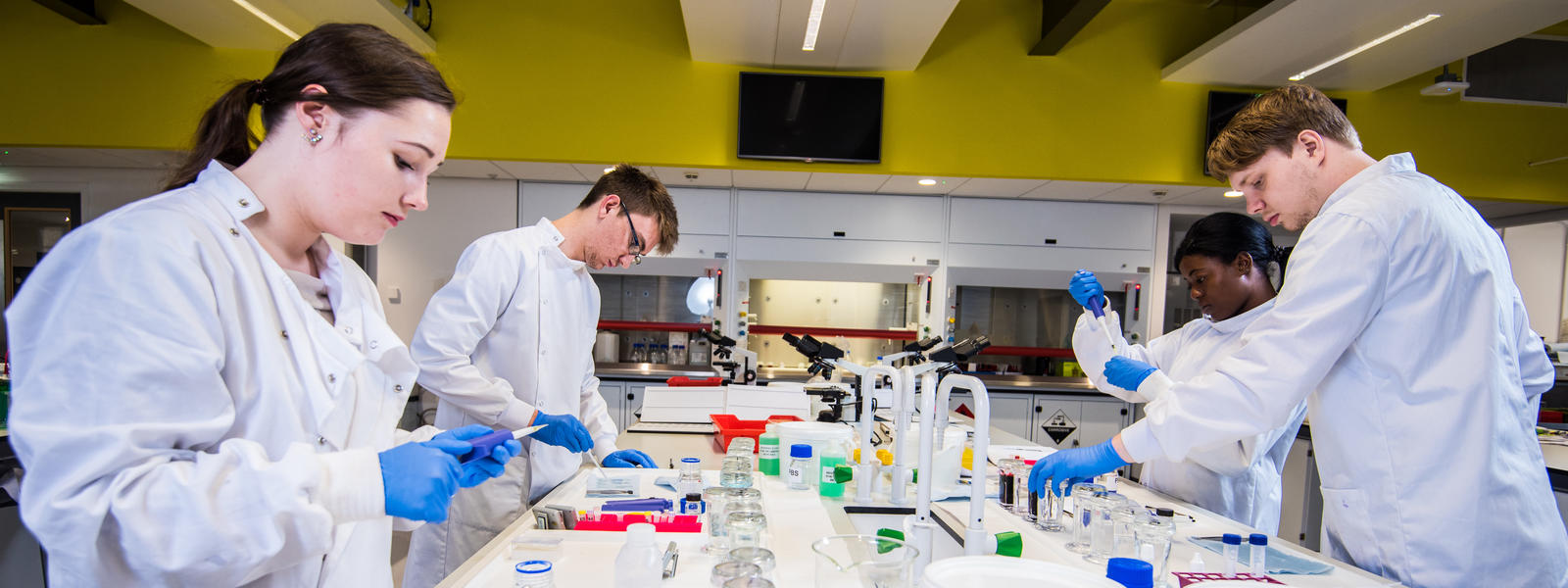
Why study Biosciences at Lancaster?

Biomedicine
If your interests lie in biological mechanisms underpinning human health or diseases, consider our IBMS-accredited Biomedical Science degree or our broader Biomedicine degree schemes, which offers a wider range of module options.
Study abroad schemes
The three year Biochemistry, Biology and Biomedicine BSc degree schemes and the four-year MSci in Biomedicine described above are all available with a study abroad option.
Where can I go?
Undergraduate degrees
View all of our bioscience degrees and the variants available for studying abroad and placement years.
See all of our undergraduate coursesJonathan Longden: BSc (Hons) Biochemistry
"For me, choosing Lancaster came down to two things: the University’s academic reputation, and equally, practical considerations like location, accommodation and the overall feel of the University.
The very best thing about the teaching at Lancaster is the quality of the material. I’ve often found myself in a lecture with a leading figure in the field lecturing, who’s made reference to research published by them only months before.
Lancaster seemed to fit the bill perfectly in every area, standing well in University league tables generally, and specifically in terms of biological sciences as a department."
Our facilities
Based in the Lancaster Environment Centre, our £4.4 million labs include cold store rooms, preparation rooms, a muffle furnace room, 12 fume cupboards, storage space, locker space for students and office space for technical staff.
See our gallery of images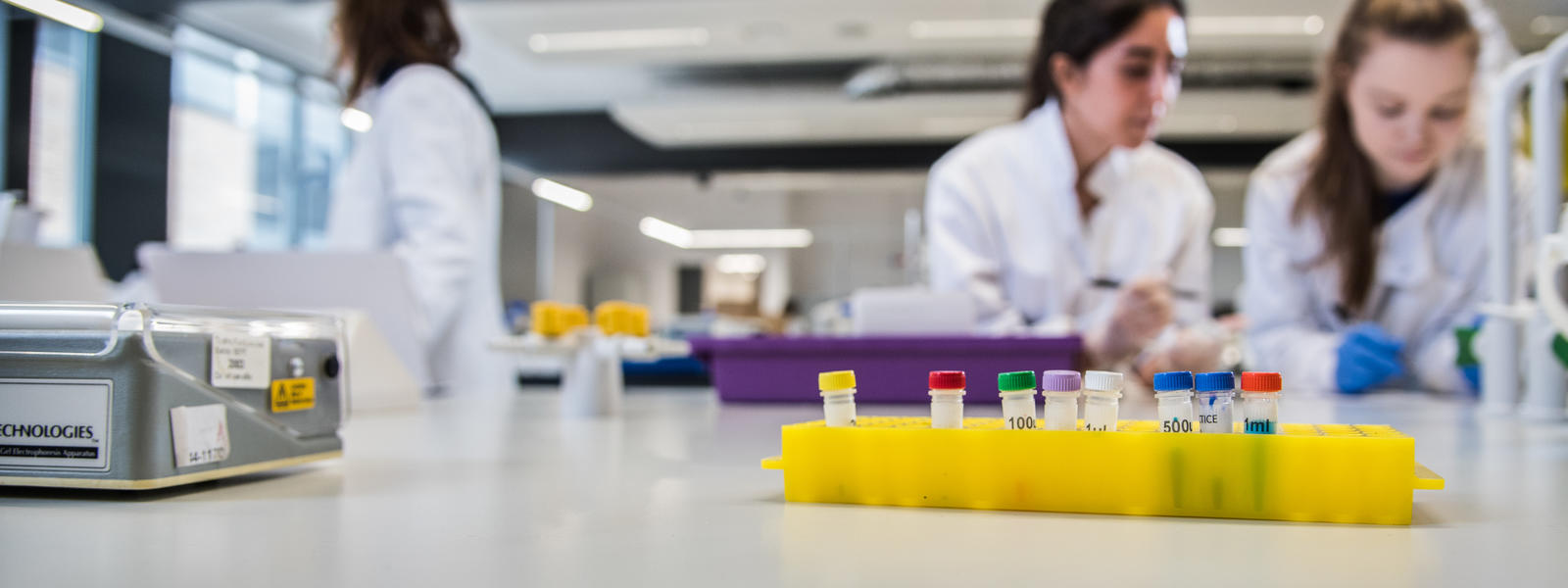
Course overview
Our combination of lectures, workshops and practicals will enhance your studies, giving you the essential – and transferable – skills that will make you attractive to employers.
Course content
Your first year will give a broad understanding of the central concepts of the course, with years two and three helping you to specialise in the area of your choice.
In a typical year, you'll attend about 180 hours of lectures and around 180 hours of practicals/workshops.
Additionally, you'll have eight hours of tutorials/one-to-one meetings per year with your Academic Tutor and seven hours of meetings per year to discuss such matters as course selection or careers.
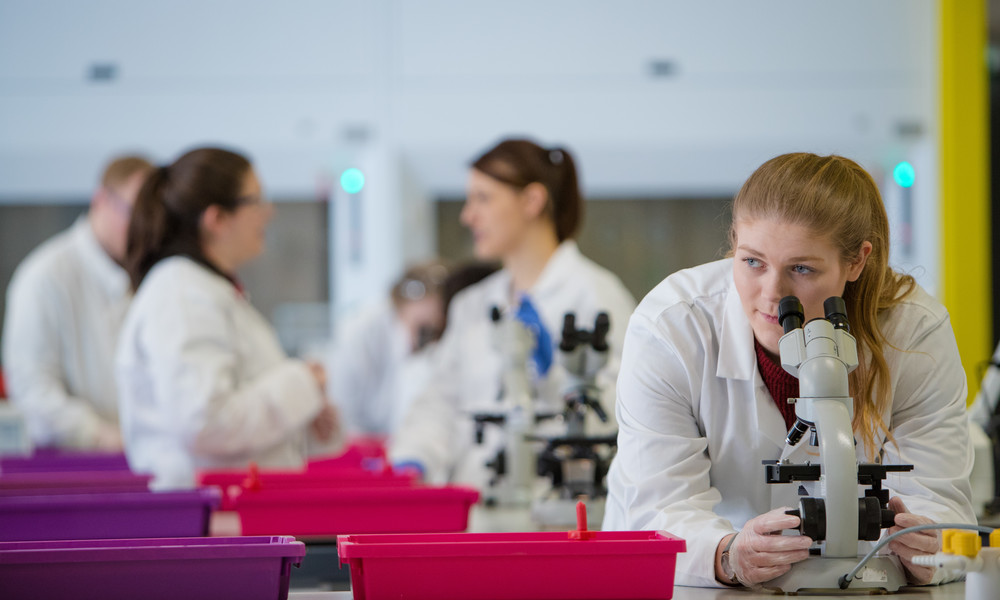
Ellie Smith: BSc Hons Biology with Psychology
"I like the human aspect of behaviour and understanding the biological mechanisms of why people behave in a certain way, which is why I chose to study Biology with Psychology. I picked Lancaster University because all you need is on one campus and it has a lovely small city.
The academic advisors in the department are very supportive for issues relating to the course and for giving specific advice on career options, and the careers website is also really helpful. My advice to any students coming to the University would be to make sure you become part of your college and make the most of the JCR and its advisors."
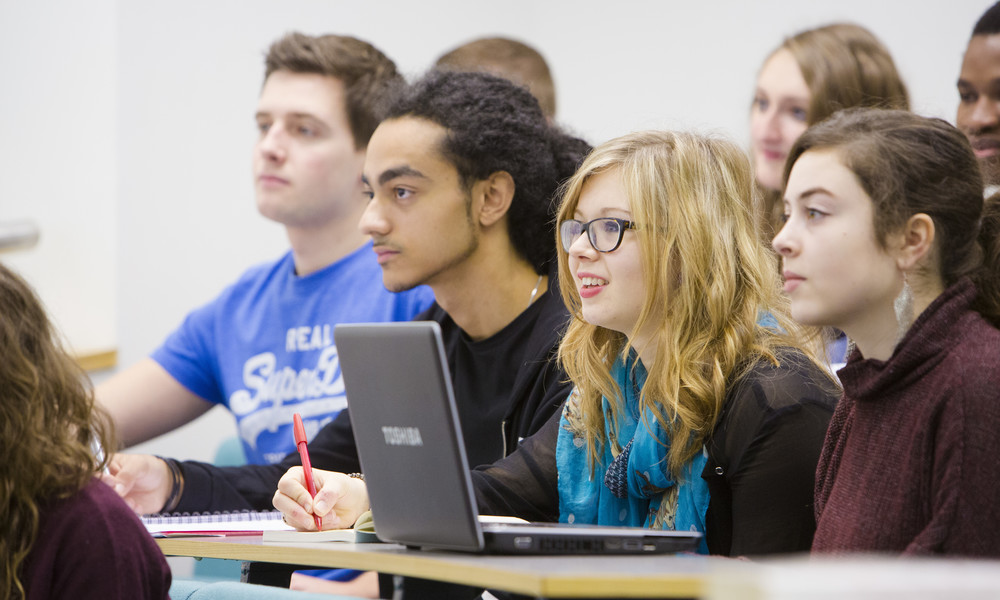
Lectures
Delivered by an expert in the topic, a one-two hour lecture provides an introduction to the subject's key issues and discoveries. You'll then supplement this with your own independent study of relevant literature.
You'll study 15 modules across the three terms of your first year, usually with no more than three modules taken at any one time.
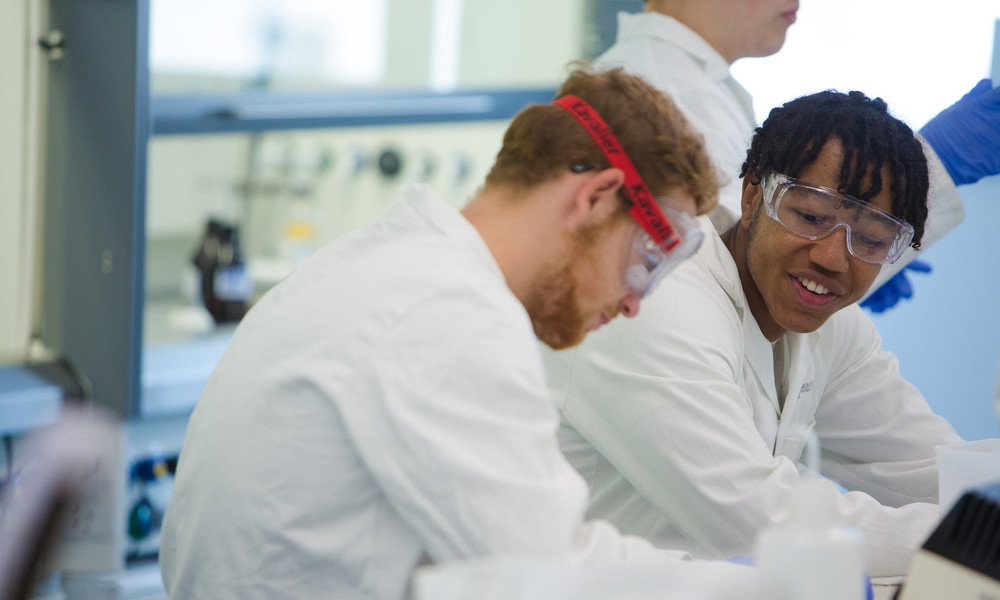
Tutorials
You'll meet with your Academic Tutor at least once a term and also take part in activities such as group tutorials to help you develop a range of skills.
We encourage you to make the most of these groups by becoming used to speaking up, listening to others and presenting yourself with confidence.

Practicals and workshops
As you'd expect, many of our course modules include practical sessions alongside lectures. These help you learn key techniques in the biosciences through hands-on experience.
Experiments complement the course content, providing practical examples of lecture material and opportunities for self-directed learning. Workshops also give you experience of working as part of a team, as you explore topics together.
Assessment
You will be assessed on your work throughout your degree, receiving regular feedback to help you develop your skills. The method of assessment varies depending on the modules, but includes essays, multiple-choice tests, presentations, laboratory reports and exams.
Tab Content: First Year (Part I)
Assessment varies depending on which department you are taking modules from. For most Biomedical and Life Sciences (BIOL) modules, you will have:
- 30% coursework – laboratory reports, essays, presentations
- 10% weekly online test
- 30% end of module test – short-answer questions
- 30% summer examination – multiple-choice questions
Tab Content: Second Year (Part II)
You will study a mixture of skills and theory modules in the second year. These are assessed in different ways.
Skills modules
- A mixture of coursework, test and practical assessment. No summer examination.
Theory modules
- 50% coursework – laboratory reports, presentations, scientific papers, essays
- 50% summer examination – short answer, essay-style and data analysis questions
Tab Content: Third Year (Part II)
Modules
Most modules will be assessed as shown below, with a few exceptions (e.g. BIOL381 – Ghana Global Health Programme, BIOL383 – Innovation in the Biosciences)
- 33% coursework – mini-reviews, laboratory reports, essays, literature reviews, seminar reports, presentations.
- 67% summer examination
Dissertation Research Project
Practical work for your dissertation begins during the summer term of your second year, following examinations. However, the submission and presentation of your work occur during your third year.
- 75% dissertation
- 15% presentation
- 10% participation – assessed by your supervisor
In addition to the range of skills that we will teach you and assess you on, there are plenty of opportunities throughout your degree for personal development that may not be formally assessed.
Placements and internships
A placement will help you gain industry-specific skills, earn a wage, develop contacts and will provide you with valuable experience.
See what opportunities are available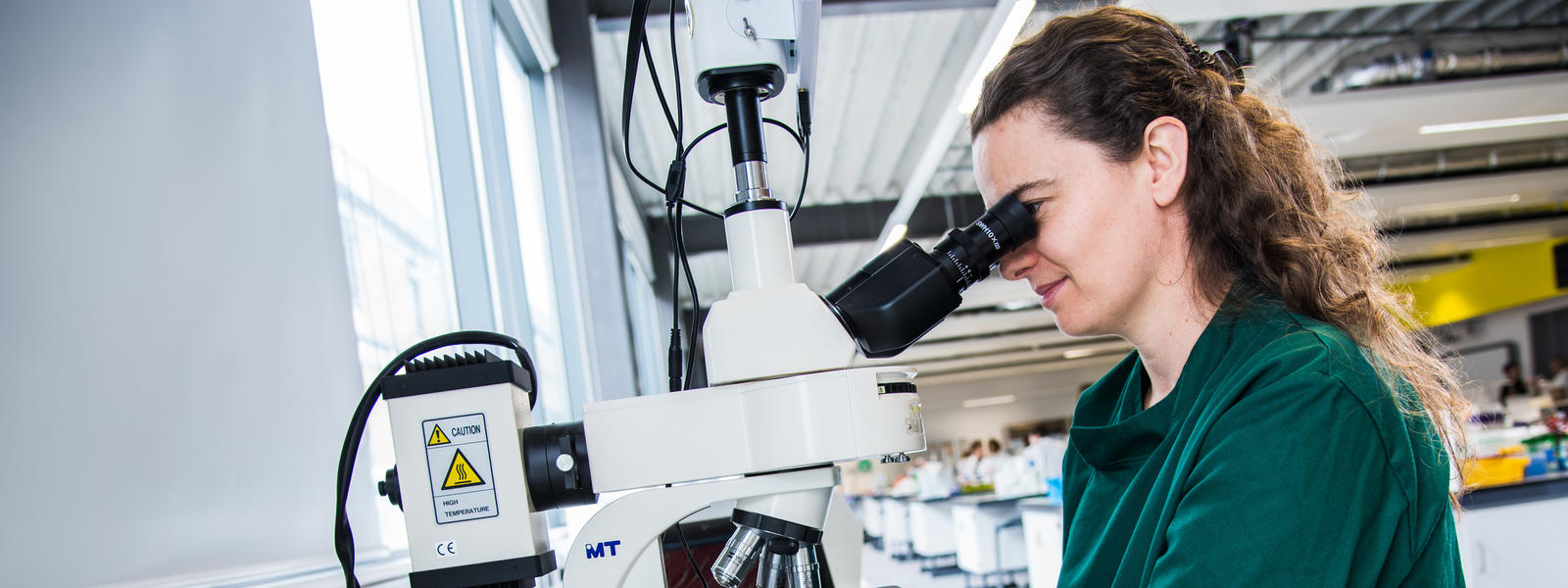
Rebecca Shepard: Biomedical Science (Placement Year) BSc Hons
"The University is very supportive of its students. From the moment you arrive on campus on your first day, you are assigned your Freshers’ Reps who will look after you during your first week. Your department assigns you an academic tutor, who you’ll meet with at intervals to monitor your progress. The lecturers are all very approachable and have open office hours if you need academic advice.
Not only is the Biomedical Science course accredited by the Institute of Biomedical Science, but I had the opportunity to spend a year on placement in an NHS hospital laboratory, gaining professional qualifications alongside my degree. I graduated in 2014, with first class honours and as the recipient of the Institute of Biomedical Science President’s Prize."
Employability
We are proud of our reputation for creating highly-qualified, employable graduates. Your degree will provide you with knowledge that can be applied in the biosciences sector or in scientific research.
Specialist techniques courses are an integral part of our degrees. Some are taught by staff from local hospitals, providing you with the skills to pursue a career in the biomedical and health care sectors.
Your future in Biosciences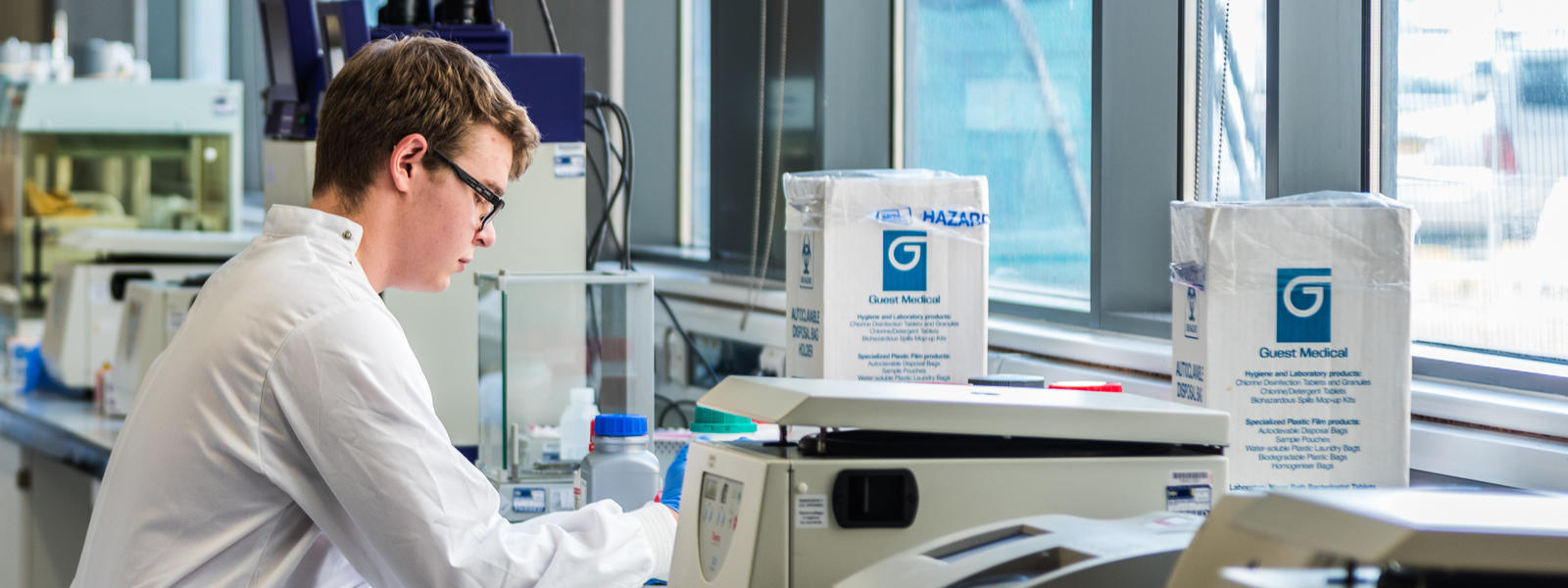
Study Support
Academic tutor
You'll meet with your academic tutor on a one-to-one basis at least once a term, as well as taking part in group tutorials. Your tutor will have an understanding of your progress through your ongoing assessment. Identifying your strengths and weaknesses, you'll tackle study areas that you may need help with and get advice on the best path to follow based on your skills and preferences.
Faculty academic support
Beth Caldwell, the Student Learning Advisor for the Faculty of Health and Medicine, offers drop in sessions, one-to-one meetings and workshops for undergraduate and postgraduate students. Topics include:
- Note-taking strategies
- Preparation for exams
- How to read academic papers
- Help with writing reports, essays and your dissertation
Support for international students
A range of academic support is available to you at the University. Please visit the Student Based Services pages for more information.
Support for disabled students
If you need support in your studies due to a disability, a range of services are available to you:
- Beth Caldwell, the Faculty Learning Advisor, provides support to disabled students
- The Library team provide extra support if you're disabled, dyslexic or have medical conditions which affect your access to resources
- The Disability Service can provide more detail about the support available


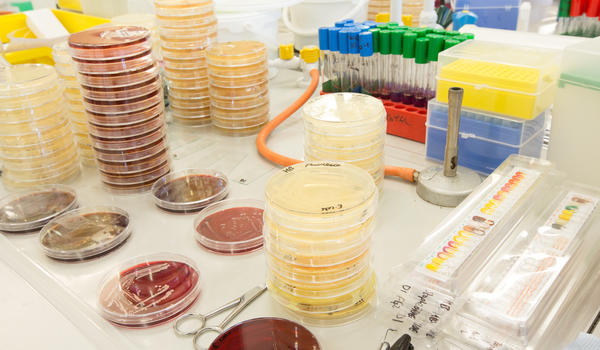
.jpg)